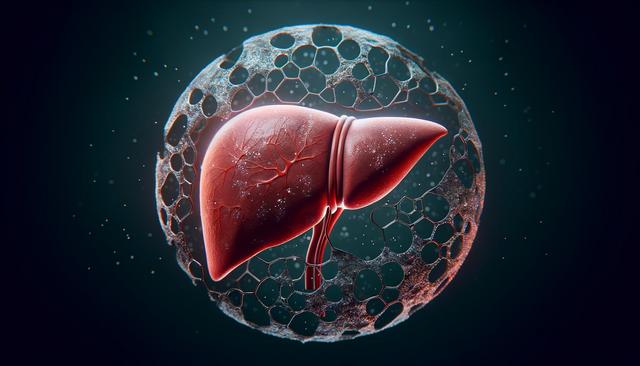Recognizing the Early Signs of Fatty Liver Disease in Women
Fatty liver disease in women often develops silently, without obvious symptoms in the early stages. However, certain signs may indicate potential liver issues and should not be ignored. Understanding the early signs of fatty liver disease in women is essential for timely diagnosis and intervention. These signs can include:
- Unexplained fatigue or a persistent sense of tiredness
- Mild abdominal discomfort, especially in the upper right side
- Unexpected weight gain or difficulty losing weight
- Elevated liver enzymes found during routine blood tests
- Skin changes such as yellowing or dark patches on the neck
Women may also experience bloating, brain fog, or hormonal imbalances, which can be linked to liver function. Identifying these signs early and consulting a healthcare provider can lead to more effective management strategies and potentially prevent disease progression.
Common Causes of Fatty Liver in Females
Understanding the common causes of fatty liver in females can help in both prevention and treatment. While fatty liver disease can affect anyone, women may face specific risk factors tied to physiology and lifestyle. Some of the most frequent contributors include:
- Poor dietary habits, especially high intake of processed foods and sugars
- Hormonal imbalances, particularly during menopause or due to conditions like PCOS
- Lack of physical activity
- Excessive alcohol consumption (even moderate consumption can be harmful in some cases)
- Obesity or rapid weight gain
These factors often work together, increasing the risk of fat accumulation in liver cells. Additionally, conditions such as insulin resistance and metabolic syndrome are more prevalent in women with fatty liver disease. Awareness of these triggers empowers women to take proactive steps toward liver health.
How Diet and Hormones Affect Liver Health
The relationship between diet, hormones, and liver health is complex, especially in women. Hormonal fluctuations, particularly estrogen and progesterone changes, can influence liver function. For example, during perimenopause and menopause, decreasing estrogen levels may reduce the liver’s ability to metabolize fats efficiently. This hormonal shift, combined with dietary habits, plays a vital role in liver health.
Key dietary factors affecting liver function include:
- High intake of refined carbohydrates and sugars
- Low consumption of fiber and antioxidant-rich foods
- Inadequate hydration
- High saturated fat intake
Following a nutrient-dense, balanced diet can help counteract these effects. Including vegetables, lean proteins, healthy fats, and whole grains supports liver detoxification and fat metabolism. Women should also be mindful of how hormonal changes impact cravings and energy levels, which can influence eating patterns and indirectly affect liver health.
Lifestyle Changes to Reverse Fatty Liver
Making consistent lifestyle changes is one of the most effective ways to reverse fatty liver. While medications may be recommended in some cases, non-pharmacological approaches often yield meaningful improvements. Key lifestyle changes to reverse fatty liver include:
- Adopting a liver-friendly diet rich in whole foods, vegetables, and lean proteins
- Engaging in regular physical activity, such as brisk walking or strength training
- Reducing alcohol intake, or eliminating it entirely
- Managing stress through mindfulness, yoga, or therapy
- Getting adequate and restful sleep
Women may benefit from working with healthcare providers who understand their unique needs. Personalized plans that consider hormonal status, current medications, and lifestyle preferences are more sustainable and effective in the long term.
Liver Friendly Treatment Options and Programs for Women
Treatment for fatty liver in women should be tailored to individual health concerns, lifestyle, and hormonal status. There are several liver friendly treatment options for women that go beyond general medical advice. These include:
- Nutritional counseling focused on female-specific needs
- Medical monitoring of liver enzymes and metabolic markers
- Supplements or medications as advised by a physician
- Programs that integrate liver health with hormonal balance
Women focused liver care programs are especially helpful, as they address not only liver function but also the broader context of women’s health. These programs often combine medical guidance, dietary planning, and lifestyle coaching to support sustainable liver health. Choosing a program that offers education, community support, and regular follow-ups can enhance motivation and lead to better outcomes.
Conclusion: Prioritizing Liver Health for Women
Fatty liver disease in women is a growing concern, but with awareness and early action, it is often manageable and even reversible. Recognizing the early signs of fatty liver disease in women, understanding how diet and hormones affect liver health, and addressing the common causes of fatty liver in females are all critical steps. Through lifestyle changes to reverse fatty liver and exploring liver friendly treatment options for women, individuals can regain control of their health. Women focused liver care programs offer additional support tailored to female needs, creating a more holistic path to wellness. By prioritizing liver care, women can enhance their overall well-being and reduce the risk of long-term complications.




Leave a Reply